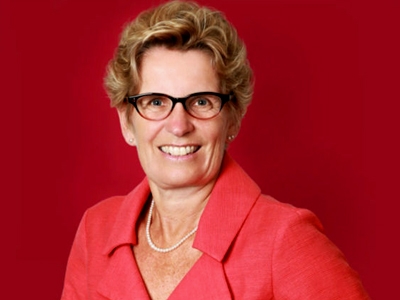
The Gross Incompetency of Ottawa-Carleton School Board Trustees
When the Ontario Ministry of Education announced on June 27 that it was taking control of the Ottawa-Carleton District School Board (OCDSB), it wasn’t just a power grab—it was a long-overdue reckoning. After five consecutive years of financial deficits, including four approved by the board itself, the province had seen enough.
The final tally? A staggering $81.3 million in accumulated shortfalls.
The Ministry cited “financial mismanagement” and “poor decision-making” as the reasons for the takeover. Within days, trustees were locked out of their official email accounts. Trustee Lyra Evans, who represents Rideau-Vanier/Rideau-Rockcliffe, confirmed she was cut off the Monday after the announcement. “I don’t have alternate contact information for all of my colleagues,” she admitted. That’s right—the elected officials responsible for overseeing a $1.244 billion budget had no backup communication system beyond a shared email server. These are the same trustees who are now publicly lamenting their removal and calling for the reinstatement of their governing powers by September.
Evans also expressed concern about losing access to hundreds of parent emails and documents. But the real concern is that those parents were relying on a system that had already failed them. The board’s inability to maintain basic communication infrastructure—let alone fiscal discipline—makes a compelling case for why the province had to intervene.
The dysfunction wasn’t limited to finances. The board has seen multiple trustee resignations in the past year, citing a toxic culture, weaponized complaints, and an inability to focus on student outcomes. Meetings devolved into ideological sparring matches, while parents and educators were left wondering who was actually steering the ship. Even the so-called “balanced” budget for 2025–26 required $18.1 million in cuts, including reductions to special education staff, early childhood educators, and discretionary teaching positions.
To restore order, the province appointed governance expert Robert Plamondon as supervisor, granting him full authority over financial, policy, and operational decisions. Plamondon brings decades of experience in public accountability and financial oversight—qualities that have been sorely lacking at the OCDSB.
But this takeover isn’t happening in isolation. Ontario has recently placed four other school boards under supervision, including the Toronto District School Board (TDSB), as part of a sweeping reform agenda. Education Minister Paul Calandra made it clear: “Each of these boards has failed in its responsibilities to parents and students by losing sight of its core mission—ensuring student success”.
The province’s broader plan is outlined in the proposed Supporting Children and Students Act, 2025, which would give the Minister of Education expanded powers to investigate boards, issue binding directives, and even rename schools if necessary. The legislation also calls for mandatory audits, public disclosure of trustee expenses, and stricter oversight of board governance and performance.
This shift signals a fundamental rethinking of how education is governed in Ontario. For decades, school boards operated with a high degree of autonomy, rooted in the belief that local trustees best understood community needs. But recent failures—from financial mismanagement to governance paralysis—have exposed the limits of that model. The province is now asserting a more centralized approach, one that prioritizes accountability, transparency, and student outcomes over local politics and ideological gridlock.
Trustee accountability is no longer a vague ideal—it’s a legislative imperative. The Ontario Education Services Corporation’s 2022-2026 Good Governance Guide outlines the responsibilities of trustees: strategic planning, budget setting, community engagement, and holding the Director of Education accountable for student achievement. When trustees fail to meet these standards, the consequences are no longer theoretical.
Ontario’s education system is at a crossroads. The province’s interventions may feel heavy-handed, but they reflect a growing consensus: governance reform is no longer optional. Whether through legislation, oversight, or structural change, the goal must be clear: put students first and ensure the systems around them are built to serve, not stumble.
The OCDSB trustees didn’t just lose control of their inboxes—they lost the public’s confidence. And until they can demonstrate a capacity for responsible governance, they have no business asking for it back.









